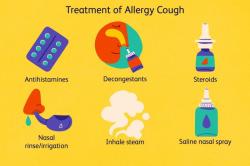What is good plastic surgery?
Good plastic surgery is characterized by several qualities that contribute to natural-looking and satisfying results while prioritizing the overall well-being of the patient. Here are some key characteristics of good plastic surgery:
Natural-Looking Results:
- The primary goal of good plastic surgery is to achieve results that look natural and harmonize with the patient's existing features. The aim is to enhance, not drastically alter, the appearance.
Patient Safety and Well-Being:
- Safety should be the top priority. A good plastic surgeon operates in accredited facilities, adheres to safety protocols, and ensures the patient's overall well-being before, during, and after the surgery.
Board Certification:
- A reputable plastic surgeon should be board-certified by relevant medical boards. Certification demonstrates that the surgeon has undergone specific training in plastic surgery and meets the standards of professional competence.
Experience and Expertise:
- A good plastic surgeon possesses significant experience and expertise in the specific procedure the patient is seeking. They should be well-versed in the latest surgical techniques and technologies.
Good Communication:
- Effective communication between the patient and surgeon is crucial. A good plastic surgeon listens to the patient's concerns, provides realistic expectations, and discusses potential risks and benefits.
Ethical Practices:
- Ethical plastic surgery involves honesty and transparency. Surgeons should provide accurate information, avoid unnecessary procedures, and prioritize the best interests of the patient.
Attention to Detail:
- Plastic surgery often involves precision and attention to detail. A good surgeon pays meticulous attention to every aspect of the procedure, ensuring symmetrical and aesthetically pleasing results.
Customized Treatment Plans:
- Each patient is unique, and good plastic surgery involves creating customized treatment plans based on the individual's goals, anatomy, and overall health.
Up-to-Date with Technology:
- A skilled plastic surgeon stays current with advancements in surgical techniques, technologies, and materials. This ensures that patients benefit from the latest innovations in the field.
Follow-Up Care:
- Good plastic surgery includes thorough follow-up care. The surgeon should monitor the patient's recovery, address any concerns, and provide guidance for optimal healing.
Positive Reviews and References:
- Positive reviews and references from previous patients can be indicators of a surgeon's skill and patient satisfaction. Online reviews and testimonials can offer insights into the surgeon's reputation.
Commitment to Continuing Education:
- The field of plastic surgery is dynamic, with new developments and techniques emerging regularly. A good plastic surgeon is committed to continuing education to stay abreast of these changes.
Artistic Eye:
- Plastic surgery is not just about technical skills; it also involves an artistic eye. A good surgeon understands aesthetics and strives to create results that enhance the patient's natural beauty.
Remember, the decision to undergo plastic surgery is a personal one, and individuals should thoroughly research and consult with board-certified and experienced surgeons to ensure a positive and satisfying outcome. Always seek consultation from qualified professionals and follow their advice for a safe and successful experience.
Achieving Natural-Looking Results and Enhancing Self-Confidence
Plastic surgery can be a transformative experience, helping individuals achieve a more natural-looking appearance and boost their self-confidence. When performed skillfully and with consideration for the patient's unique features and goals, plastic surgery can subtlely enhance facial features or body contours, resulting in a more harmonious and aesthetically pleasing appearance.
The goal of plastic surgery should not be to create an artificial or drastically different appearance but rather to refine and accentuate the patient's natural beauty. By achieving a natural-looking outcome, individuals can experience a renewed sense of self-assurance and satisfaction with their appearance.
Addressing Functional Issues and Improving Quality of Life
Beyond cosmetic enhancement, plastic surgery can also address functional issues and improve patients' overall quality of life. Reconstructive surgery, for instance, can restore form and function to areas affected by trauma, disease, or congenital defects.
Procedures such as breast reconstruction can restore balance and symmetry following mastectomy, while cleft palate repair can improve speech and breathing difficulties. Similarly, reconstructive surgery after burn injuries can restore mobility and function, improving patients' daily lives.
Maintaining Ethical Standards and Ensuring Patient Safety in Plastic Surgery
Plastic surgery is a complex medical specialty that demands the highest ethical standards and patient safety measures. Surgeons must adhere to strict guidelines and undergo rigorous training to ensure they possess the necessary expertise and judgment to perform these delicate procedures.
Informed consent is paramount in plastic surgery, ensuring that patients fully understand the risks, benefits, and potential outcomes of their chosen procedure. Surgeons must thoroughly explain the procedure, discuss potential complications, and address any patient concerns.
Patient safety is a top priority in plastic surgery. Surgeons must employ advanced techniques, utilize sterile operating environments, and closely monitor patient recovery to minimize risks and ensure optimal outcomes.












